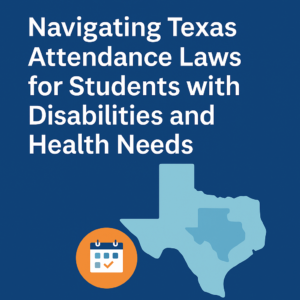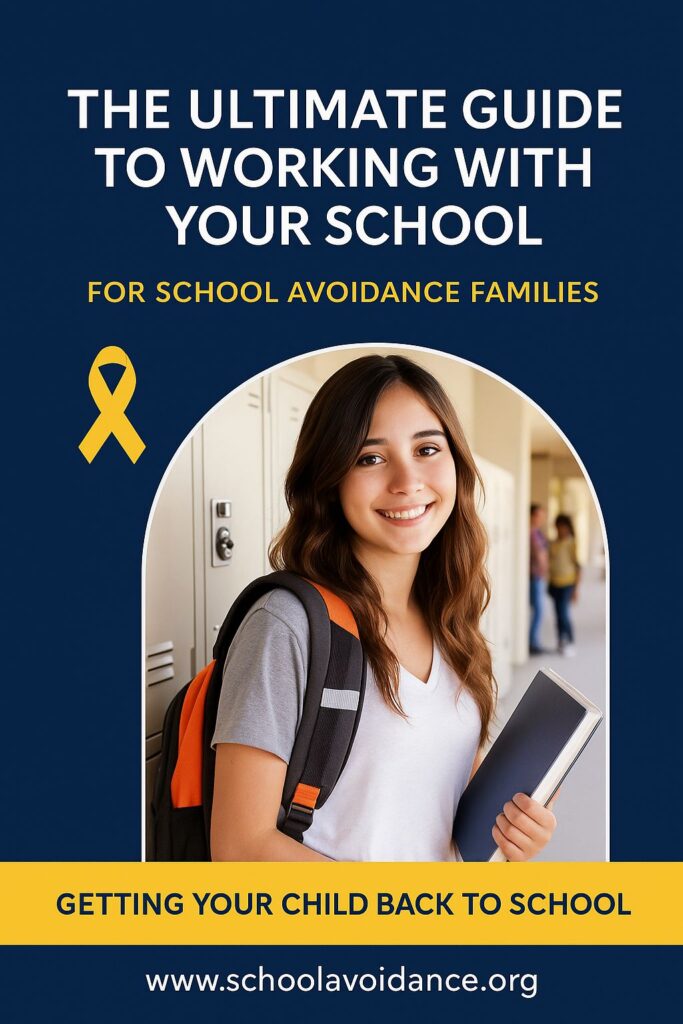Children are supposed to go to school. We could equate kids going to school with adults working every day. So, when your child starts to avoid or refuse to go to school, it throws you for a loop. Going to school is their job, right?
When kids begin missing school days at a time or show patterns of missing school, we have a name for that. It’s called school avoidance (aka school refusal). Most families have never heard about school avoidance before, so when it happens to you, you are totally blindsided and not even sure what is happening.
The prevalence of school avoidance in the U.S. and the world is challenging to nail down.
The prevalence of school avoidance in the U.S. and the world is challenging to nail down. Today, there is no specific code or mandate to specify school avoidance (or mental health issue) in school attendance data. The best data I have seen is from leading school avoidance researchers David Heyne, D., & Brouwer-Borghuis, M. (2022). Signposts for School Refusal Interventions.
“School refusal occurs among 1–7% of youths in the general population, varying according to the definition used and sample studied.”
And don’t forget that this data doesn’t include post covid studies. We know from talking to schools and families daily that covid has exacerbated and increased school refusal numbers.

We have a private Facebook group for families of kids who are avoiding school. We recently took an informal poll to see if our parents were aware of school avoidance before it started in their homes.
We asked these families two questions:
- Have you heard about school refusal before?
- How long did it take for you to realize or for someone to tell you that your child was dealing with school avoidance?
We received 52 responses. The results were that three parents had heard the term school refusal before (less than 1%), and the time it took to determine or hear from a professional that it was school refusal ranged from 6 months to 2 years.
These were some of the comments we received from our FB families.
“It took 1 year and there was no mention of the term school refusal/avoidance from any doctors, psychologists, school counselors, or teachers.”
A sample of responses from our Facebook families
“To this day, no one in school has identified it as school refusal.”
“ Several months later, it was said to me like this “children who have school avoidance have dire outcomes later in life.”
“Despite multiple meetings at school, including a threat of truancy and a well being check by a uniformed police officer, I did not learn the term school refusal until I saw it on your website.”
“After two years, I feel most others I talk to, including some good school counselors, are not familiar with it.”
Research shows that the best outcomes happen when there are early interventions. How can we intervene early if no one recognizes the problem?
It’s important to note that you may have friends and family who have kids with school avoidance, but they haven’t told you. Not all families will share this because school avoidance is often misunderstood, and parents feel blamed and judged.
To help others, check out these ways to spread awareness
- Forward or share this blog on your social media and with your FB friends
- Schools should educate their staff about school refusal and get them professional development.
- Pediatricians should get professional development in school avoidance
- Schools including school avoidance information on your school website
- Let your school board of education know about school avoidance because schools that cannot educate their students are vulnerable to out-of-district placement costs.
- Share this blog post on Linkedin and your other social media (yes, we intentionally repeated this)
- Media and freelance writers, your audience would appreciate you educating them on this problem.
For families, be aware of some of these school refusal warning signs:
- Showing distress, tantrums, or crying in the morning before school
- Difficulty getting your child out of bed without a lot of cajoling.
- Refusing to get out of the car at drop-off
- Starting to miss school with some frequency or pattern
- Starting to have problems doing school work in class or at home (which can lead to school avoidance)
- Texts to pick up your child from school during the day
Our parent peer-to-peer support group has families who have recently stopped going to school for 2-4 weeks and kids who have been out of school for months or years. Educate yourself on school avoidance. We always tell the newbies (2-4 weeks) to get their school involved immediately and work on a re-engagement plan. No matter how long your child has been out of school, you always need to be working with your school. They have the means to help you.

Remember, you are always the best advocate for your child, so don’t rely on others to educate you.
The first few weeks are a crucial time when you can prevent chronic school refusal. The school avoidance alliance offers multiple ways to help families and schools. For families:
- Visit our website at www.schoolavoidance.org for information
- Download our Parent’s Ultimate Guide to Working with Your School
- Take our School Avoidance Master Class for Parents with our country’s leading school refusal clinicians and professionals.
For schools looking for training and Tier 2 and Tier 3 interventions. Contact us here.
About the School Avoidance Alliance: We are dedicated to educating families and schools on school avoidance best practices and evidence-based interventions.





